
Moin Ansari:
A revealing account surfaces of happenings in Hyderabad state in the wake of the Indian Army’s ‘Police Action’ there in 1948.
“AT times one has to close his (sic) eyes in national interest.” The “senior police officer” who made this confession to The Indian Express, in Srinagar on February 17, provided a truthful explanation for the compromises which sections of the medi a and academia tend to make in the “national interest”.
The officer was speaking of the volte-face his chief, A.K. Suri, had performed with regard to the disclosure of the arrest by the police of a man from Military Intelligence, in plain clothes, for firing wantonly on a group of youngsters in Maisuma , in Srinagar. But, let alone matters of immediate occurrence or issues of current interest such as Kashmir and the border dispute with China, even on historical events one finds a practice of economising with truth.
That K.M. Munshi, India’s Agent-General in the erstwhile state of Hyderabad, did not mention in his memoirs The End of an Era (1957) the massacre of Muslims in many areas in the wake of the Indian Army’s “Police Action” in September 1948 – itself a compromise with the truth – was but to be expected in view of his outlook. Not so its omission in standard works by writers who aspired to scholarly values and who were not communal; only “patriotic” in a perverted but familiar manner. A rare exception was the book by Communist Party of India (Marxist) leader P. Sundarayya, Telengana People’s Struggle and its Lessons (1972). He wrote of the “untold miseries” that were inflicted on “the ordinary Muslim people” (pages 88-89).
Suppression of records is not only unethical but futile. More often than not, the foreign scholar will unearth it from archives in London or Washington, or in India itself. A German scholar has done just that. Margrit Pernau records in her book The Pa ssing of Patrimonalism that “while the occupation by the Indian army had been quick and had caused only relatively few casualties, the following communal carnage was all the more terrible. The Razakars had sown wind and reaped not only storm but a hu rricane which in a few days cost the lives of one-tenth to one-fifth of the male Muslim population primarily in the countryside and provincial towers”. (page 336, emphasis added, throughout. See review on page 75).
Professor Wilfred Cantwell Smith, a scholar on Islam and a critic of Jinnah’s politics, wrote a seminal article in the periodical The Middle East Journal in 1950 (Volume 4) titled Hyderabad: A Muslim Tragedy. He was Lecturer in Islamic Hist ory at the University of the Punjab and at the Forman Christian College, Lahore (1940-1946) and visited Hyderabad in 1949. In a critique of the Nizam’s policies and of Qasim Razvi, the leader of the Razakars, he also fairly described the aftermath.
“Off the battlefield, however, the Muslim community fell before a massive and brutal blow, the devastation of which left those who did survive reeling in bewildered fear. Thousands upon thousands were slaughtered; many hundreds of thousands uprooted . The instrument of their disaster was, of course, vengeance. Particularly in the Marathwara section of the state, and to a less but still terrible extent in most other areas, the story of the days after ‘police action’ is grim.
“The only careful report on what happened in this period was made a few months later by investigators – including a Congress Muslim and a sympathetic and admired Hindu – commissioned by the Indian Government to study the situation. The report was submitted but has not been published; presumably it makes unpleasant reading. It is widely held that the figure mentioned therein for the number of Muslims massacred is 50,000. Other estimates by responsible observers run as high as 200,000, and by some of the Muslims themselves still higher. The lowest estimates, even those offered privately by apologists of the military government, came to at least ten times the number of murders with which previously the Razakars were officially accused… In some areas, all the men were stood in a line, and done to death. Of the total Muslim community in Hyderabad, it would seem that somewhere between one in ten and one in five of the adult males may have lost their lives in those few days. In additio n to killing, there was widespread rape, arson, looting, and expropriation. A very large percentage of the entire Muslim population of the Districts fled in destitution to the capital or other cities; and later efforts to repatriate them met with scant s uccess.” He was referring to a report by Pandit Sundarlal (1886-1980) and Kazi Muhammad Abdul Ghaffar(1889-1956).
In 1988, Omar Khalidi, a devoted chronicler of Hyderabad, published what he claimed were extracts from their Report in his compilation of essays, Hyderabad: After the Fall (Hyderabad Historical Society; Wichita, Kansas; U.S.). His introduction to the extracts, though informative, is marred by inaccuracies and intemperate language. He had relied, somewhat uncritically, on an interview with Yunus Salim who claimed inaccurately, that he was a member of the team led by Sundarlal which toured Hyderaba d in November-December 1948. A 32-year-old State attorney then, he was dismissed from the post for having helped the team.
Yunus Salim was a Deputy Minister for Railways in Indira Gandhi’s government (1969) and a Governor of Bihar in 1991. Garbled versions of the Report appeared in Pakistan. Khalidi writes: “In addition to the copy in the Union Home Ministry, Srinivas Lahoti , a Communist Party of India leader in Hyderabad, owned a copy. In an interview in February 1988 he claims to have deposited it with the National Archives of India, New Delhi upon his party’s instruction. The present writer obtained fragments of t he Report (which is partly in English and partly in Urdu) from owners who wish to remain anonymous. The portion in English is being reproduced without any alteration. The Urdu portion is translated into English.”
Khalidi was misled. The entire document is in English and the “fragments” he reproduces should have put him on notice that it is not safe to rely on them. The brief Introductory portion is intrinsically unreliable. The rest is a village-wise and d istrict-wise account.
Union Home Minister Vallabhbhai Patel reacted angrily to the Report in a letter to Abdul Ghaffar dated January 4, 1949:
“I notice that in your report you mentioned that you were asked by the Government of India to proceed to Hyderabad State on a goodwill mission. At least I am not aware of any such mission having been entrusted to you by the Government of India. As far as I know, you wanted to go there and it was arranged that you should go there at Government expense. There could have been no question of Government of India sending any goodwill mission to Hyderabad State.
“I notice that your report is and your activities were, restricted to making inquiries about what happened during and after the police action. There is nothing in it about the extent and consequences of Razakar atrocities. Probably that was out of the terms of reference which you had set for yourselves. At the same time, you have covered in your reports matters which could by no stretch of imagination, have formed the purview of your enquiry. I should also like to say at once that the detailed in quiries which have been made by the local administration over a fairly long period as opposed to the roving enquiries which you have made during such a short period show that your estimate and your appreciation of the position lack balance and proportion . Finally you have rushed into a sphere which might have been more appropriately left to be covered by experienced statesmanship and administrative ability.”
The assertions were simply untrue and the aspersions were unworthy of Sardar Patel. In those days nobody could have toured the State without official approval. That the team went there admittedly “at government expense” revealed a lot. And, as we know “e xperienced statesmanship and administrative ability” do not guarantee impartiality in inquiries. The report censured the Razakars and was balanced.
Kazi Abdul Ghaffar was a bitter critic of Razvi’s Majlis-e Ittihadul-Muslimin and was trusted by the State Congress. He was editor of Firangi Mahal’s Khilafatist paper Akhuwat (1919-20) and of Payam (1934-46) and was respected as a scholar- journalist. He visited Hyderabad in October along with Padmaja Naidu and alerted Maulana Abul Kalam Azad to the happenings there. Pandit Sundarlal was vice-president of the United Provinces Congress (1931-36) and as president of the All-India Peace Counc il (1959-63), urged rapprochement with China against the majority view of the times.
His magnum opus, The Gita and The Quran, is a neglected work. An English translation was published in 1957 by the Institute of Indo-Middle East Cultural Studies, Hyderabad. Neglected also is Volume 8 (second series) of Selected Works of Jawahar lal Nehru (1990) (pages 102-113).
In a Note to Sardar Patel’s Ministry of States, dated November 14, 1948, Prime Minister Jawaharlal Nehru, while denying Pakistan’s propaganda, wrote: “I have recently had talks with Kazi Abdul Ghaffar and Miss Padmaja Naidu, who have just returned from H yderabad. They are both reliable observers… The impression I have gathered from these talks is that while our army is generally believed to have functioned well and to have protected the people, there is little doubt that a very large number of outbreaks took place in the small towns and villages resulting in the massacre of possibly some thousands of Muslims by Hindus, as well as a great deal of looting, etc… This information is contrary to what I had believed and I should like it to be verified through our military and civil authorities in Hyderabad. We must know the truth, or else we shall be caught saying things which are proved to be false later.” It is unlikely that those reports did not reach the ears of the Minister concerned, Vallabhbhai Patel.
Even men like Dr. Zakir Hussain’s brother, the academic Dr. Yusuf Husain Khan, and Dr. M. A. Ansari’s nephew, M.A. Ansari, a High Court Judge, were “removed from their post”, Nehru complained. He added: “One of the persistent charges made is that we inte nd to kill what is called Muslim culture. Hyderabad is known all over the Middle East as a city of Muslim culture. The Osmania University is well known and even better known is the publication department and the translation bureau of the State.”
With a letter to V.P. Menon, the secretary of the Ministry, dated November 26, 1946, Nehru enclosed a note on the situation in Hyderabad and remarked: “If possible, some good non-officials should go there to help the administration and to try to produce a better frame of mind both among the Muslims and the Hindus.”
The editor to the volume recorded: “A four-man goodwill mission, consisting of Kazi Abdul Ghaffar, Pandit Sundarlal, Moulana Abdulla Misri and Furrukh Sayer Shakeri, was sent to Hyderabad at the personal instance of Nehru to study existing conditions and to help in the establishments of communal harmony. After a brief visit to Bidar and Osmanabad districts by Major-General Chaudhury, Pandit Sundarlal, Akbar Ali Khan and Fareed Mirza, two teams, one consisting of Pandit Sundarlal, Kazi Abdul Ghaffar, Mul la Abdul Basith and Mohammed Yunus Saleem had toured Bidar, Osmanabad and Nanded while the other consisting of Moulana Abdulla Misri, Furrukh Sayer and Fareed Mirza visited Aurangabad, Bhir and Gulbarga. They took stock of the information collected and s ent a report to Vallabhbhai Patel.”
All of which shows Sardar Patel’s repudiation of the officially sponsored team to be less than honest. Nehru’s note cited “additional reports from Hyderabad” about the killing and looting. It said: “If there is even a fraction of truth in these reports, then the situation in Hyderabad was much worse than we had been led to believe. It is important that the exact facts should be placed before us. We want no optimistic account and no suppression of unsavoury episodes. That would lead us to form incorrect judgments… A sense of fear seems to pervade the Muslims of Hyderabad. That is perhaps natural after all that has happened. But unless we can lessen this fear, the situation will become worse.”
Dr. Charan Sandhilya, Director of Pandit Sundarlal Institute of Asian Studies at Ghaziabad obtained for this writer a copy of the full text of the Sundarlal Report from the Nehru Memorial Museum and Library, New Delhi (excerpts on facing page). It record s official sponsorship and reflects their objectivity in denouncing the Razakars’ murderous attacks on Hindus, in praising officials where praise was due, yet never flinching from telling the terrible truth about the massacre of Muslims. This is a truth which hardly any Indian scholar has deigned to admit this day.
The Sundarlal Report is of more than historical importance; it is of current relevance, for the massacres, coupled with the national indifference to them, have left scars in the minds of Muslims in the State, Hyderabad city in particular. And some Muslim communal parties have not been slow to exploit these scars.
HYDERABAD:Of a massacre untold A. G. NOORANI
Hyderabad State had its own army, as well as its own airline, telecommunication system, railway network, postal system, currency and radio broadcasting service, with a GDP larger than that of Belgium.
Read more of this post

































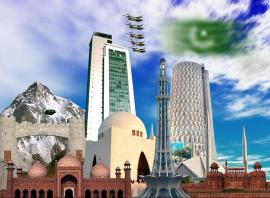
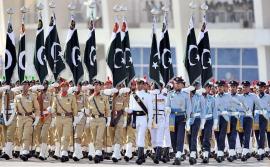

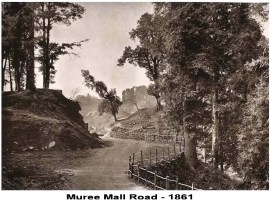
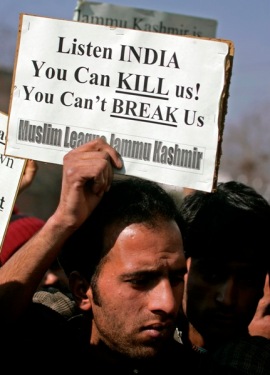
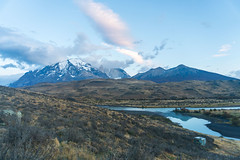

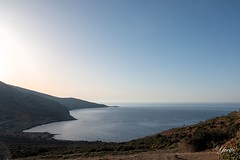

























Recent Comments